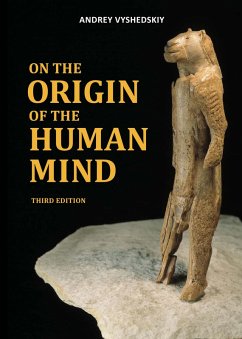
Mental Evolution in Man: Origin of Human Faculty (eBook, ePUB)

PAYBACK Punkte
0 °P sammeln!
In "Mental Evolution in Man: Origin of Human Faculty," George John Romanes meticulously explores the development of human intelligence through a thorough examination of evolutionary psychology and comparative anatomy. Romanes employs a blend of empirical observations and philosophical inquiry, presenting a profound argument that intertwines scientific rigor with literary elegance. His work stands as a significant contribution to the field of evolutionary theory during a time when the scientific community was grappling with the implications of Darwinian thought, thus enriching the intellectual ...
In "Mental Evolution in Man: Origin of Human Faculty," George John Romanes meticulously explores the development of human intelligence through a thorough examination of evolutionary psychology and comparative anatomy. Romanes employs a blend of empirical observations and philosophical inquiry, presenting a profound argument that intertwines scientific rigor with literary elegance. His work stands as a significant contribution to the field of evolutionary theory during a time when the scientific community was grappling with the implications of Darwinian thought, thus enriching the intellectual landscape of the late 19th century. George John Romanes, a close associate of Charles Darwin, was deeply immersed in the intellectual currents of his time. His background in natural science and his interest in the mental faculties of animals and humans allowed him to approach the subject with both a scientific and a humane perspective. Romanes' belief in the continuity of mental evolution prompted him to undertake this ambitious exploration, seeking to bridge the gap between science and philosophy, which has remained a significant point of discussion in psychology and anthropology. Readers who are curious about the origins of human thought and the evolutionary mechanisms that have shaped our faculties will find "Mental Evolution in Man" not only enlightening but essential. Romanes' comprehensive analysis invites both scholars and interested readers to ponder the profound complexities of human nature and our place within the broader tapestry of life.
Dieser Download kann aus rechtlichen Gründen nur mit Rechnungsadresse in A, B, BG, CY, CZ, D, DK, EW, E, FIN, F, GR, H, IRL, I, LT, L, LR, M, NL, PL, P, R, S, SLO, SK ausgeliefert werden.













